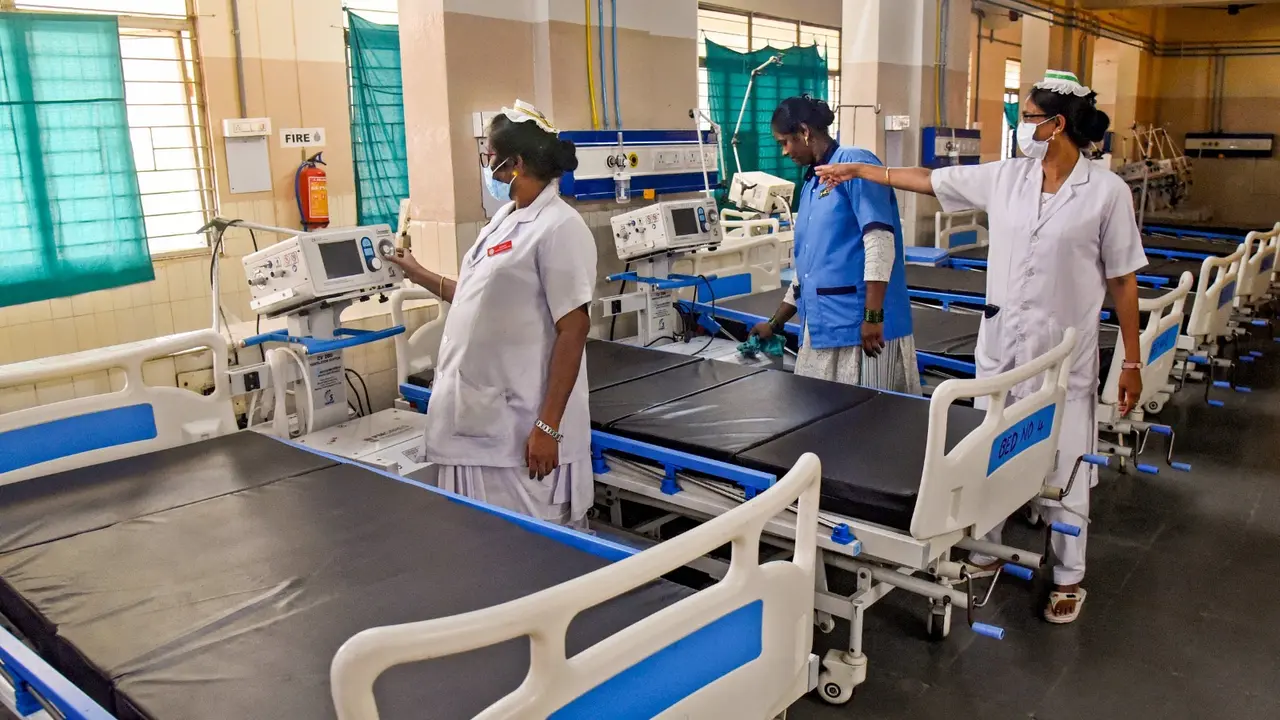Updated 28 August 2024 at 09:49 IST
Is India Ready For This New Severe Mpox Strain?
There's a newly emerging strain of monkeypox that's exhibiting both a wide transmission rate and severe symptoms. Is India ready for it?
- Health News
- 2 min read

Monkeypox, a viral zoonotic disease, which was confined to Central and West Africa, and later declared as a global health concern, has a newly emerging strain that's exhibiting both a wide transmission rate and severe symptoms, posing as a challenge to health systems worldwide.

Prominent Mpox symptoms
Monkeypox typically initiates with flu-like symptoms: fever, headache, muscle aches, and fatigue. It then progresses to a distinctive rash that evolves from flat lesions to raised bumps, fluid-filled blisters, and eventually scabs. Swollen lymph nodes are a notable symptom that distinguishes monkeypox from similar illnesses like smallpox. The virus primarily spreads through direct contact with an infected person’s rash, bodily fluids, or contaminated materials. Respiratory droplets from prolonged close contact can also transmit the virus, and zoonotic spread occurs via infected animals.

Mpox outbreak
The World Health Organization (WHO) has highlighted monkeypox as a rising global health threat. On August 14, the WHO declared the outbreak a global emergency, signaling the urgency of international efforts to combat the disease. The WHO is spearheading global responses by offering technical support, developing case management guidelines, and promoting research into treatments and vaccines.

Precautionary measures undertaken
In response to this escalating threat, India has implemented comprehensive measures to manage and control the potential spread of monkeypox. The Ministry of Health and Family Welfare has issued detailed guidelines focusing on surveillance, case management, and public health interventions. Key recommendations include early detection, immediate reporting, and isolation of suspected cases to curb transmission.
Advertisement
The states particularly those with higher infection rates such as Maharashtra and Kerala, are intensifying their response efforts. These states are bolstering surveillance systems, establishing dedicated treatment facilities, and launching public awareness campaigns to educate citizens about monkeypox. Additionally, state health departments are enhancing their diagnostic capabilities to ensure accurate and timely identification of cases.
Training programs for healthcare professionals are also being rolled out to improve their ability to recognize and manage monkeypox. By equipping medical staff with the necessary skills and knowledge, the Indian government aims to strengthen its response to the outbreak and mitigate its impact.
Advertisement
Published By : N. Lothungbeni Humtsoe
Published On: 28 August 2024 at 09:49 IST
